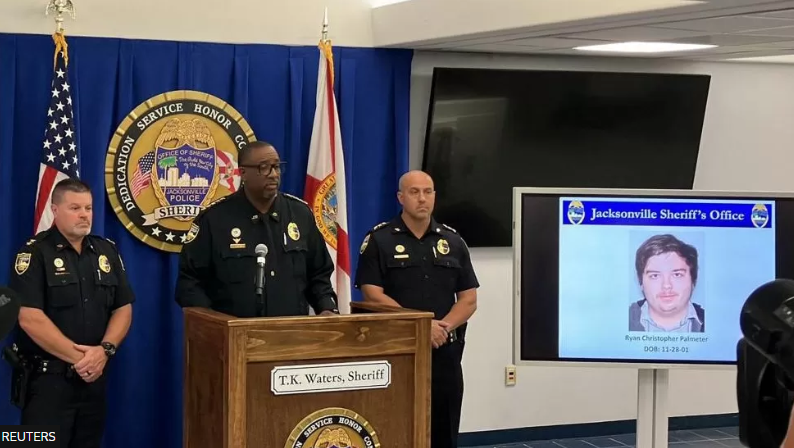
In a heart-wrenching incident that unfolded on August 26, a racially motivated shooting claimed the lives of three Black individuals in a Dollar General store located in Jacksonville, Florida. The tragic event serves as a stark reminder of the pervasive issue of hate-fueled violence that continues to plague communities across the United States.
"The shooting was racially motivated, and he hated Black people," stated Jacksonville Sheriff T.K. Waters at a press conference, providing a grim insight into the shooter's mindset.
The assailant, a white man whose identity has not been disclosed, entered the Dollar General armed with both a high-powered rifle and a handgun. His actions resulted in the deaths of two men and a woman, all of whom were Black. The Jacksonville Sheriff's Office quickly characterized the shooting as a racially motivated crime, with Sheriff T.K. Waters asserting that the assailant "hated Black people."
One of the most chilling aspects of this tragedy was the shooter's preparation and intent. Prior to his deadly assault, the suspect had authored a series of manifestos, in which he expressed his virulent hatred for Black individuals. These manifestos were intended for distribution to media outlets, his parents, and law enforcement. The contents of these documents offered a disturbing insight into the mind of the shooter, highlighting the depths of his prejudiced ideologies.
Waters disclosed that the assailant used both a Glock handgun and an "AR-15 style" rifle during the attack. Notably, the rifle bore swastikas, further underscoring the shooter's affiliation with white supremacist and hate-fueled ideologies. The AR-15 style rifle, infamous for its association with mass shootings, has once again found its way into the spotlight as a tool of violence and terror.
"The hate that motivated the shooter's killing spree adds an additional layer of heartbreak," Waters said, underscoring the devastating impact of the attacker's ideologies on the victims and their communities.
The shooting took place not far from Edward Waters University, a historically Black college in the area. The assailant was reportedly spotted on the university campus, where he donned a tactical vest and a mask before proceeding to the Dollar General store. This unsettling detail emphasizes the calculated nature of the attack, as well as the level of planning involved.
In the aftermath of the tragedy, local and federal law enforcement agencies have responded with urgency. The Jacksonville FBI office initiated a civil rights investigation, categorizing the incident as a hate crime. Sherri Onks, the special agent in charge of the FBI's Jacksonville office, reiterated the agency's commitment to tackling hate crimes, which not only target individual victims but also aim to terrorize entire communities.
"Hate crimes are always and will always remain a top priority for the FBI because they are not only an attack on a victim, they're also meant to threaten and intimidate an entire community," Onks said, underscoring the broader impact of such acts.
The response from the federal government has been swift as well. U.S. President Joe Biden and Attorney General Merrick Garland were briefed on the incident, reflecting the gravity of the situation and the government's recognition of the need to address hate-fueled violence. However, this tragedy is not an isolated incident; it is part of a disturbing trend that has seen mass shootings become all too common in the United States.
The Gun Violence Archive has reported more than 469 mass shootings in 2023 alone, further highlighting the pressing need for comprehensive gun control measures. This nonprofit organization defines a mass shooting as an event where four or more individuals are either killed or wounded, excluding the shooter. The staggering numbers underscore the urgent need for meaningful changes to prevent such acts of violence.
This recent tragedy in Jacksonville bears unsettling similarities to previous incidents of hate-fueled violence. Just last year, a white supremacist killed 10 Black individuals in Buffalo, adding to the grim tally of lives lost due to prejudice and hatred. Additionally, the Jacksonville shooting occurred five years after another gunman targeted a video game tournament in the same city, resulting in the deaths of two individuals before the shooter turned the gun on himself.
Florida Governor Ron DeSantis condemned the shooting and criticized the assailant's actions as taking "the coward's way out." The assailant's use of a manifesto to articulate his racist beliefs further emphasizes the need for society to confront and address the roots of such ideologies.
